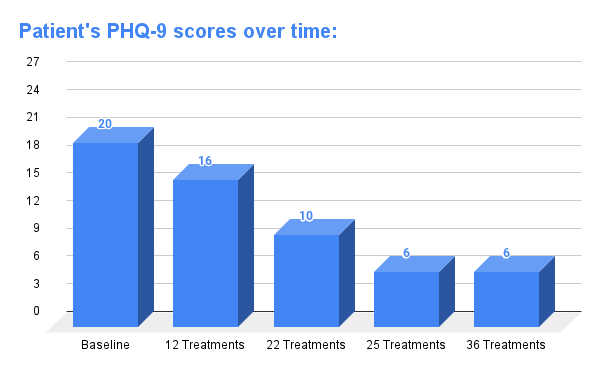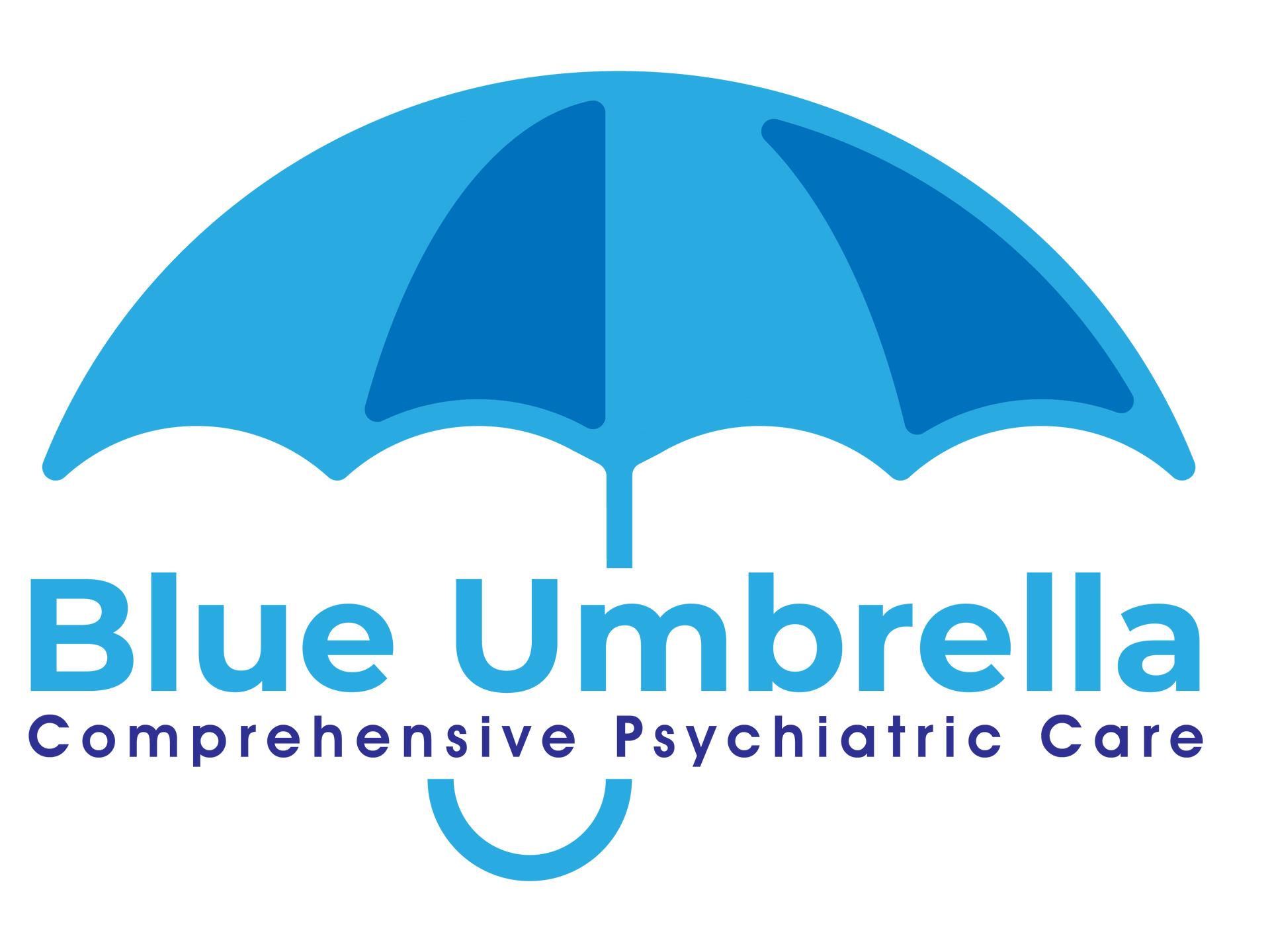Blue Umbrella | Case Studies in Resilience
An Unexpected Level Of Peace
- The patient is an adult woman suffering from depression for decades
- Depression caused her to lose interest in previously enjoyed aspects of life
- The patient became isolated from family
- The patient was prescribed 36 sessions of TMS
- The patient experienced a significant and sustained reduction in depression
Patient Health Questionnaire-9 (phq-9)
is the accepted, self-administered tool for measuring the severity of depression.
A PHQ-9 score total of 0-4 points equals no, or minimal depression.
Scoring between 5-9 points indicates mild depression,
10-14 points indicate moderate depression,
15-19 points indicate moderately severe depression,
and 20 or more points indicate severe depression.

The Patient's Own Words
"I stopped having regular suicidal thoughts, the treatment has given me more energy and helped me to improve my personal and professional relationships. I've become more sociable and outgoing. I have never in my adult life, at 36, felt so clear-headed and free of negative thoughts. This treatment has brought me a level of peace I never expected."
About Blue Umbrella Psychiatry
For patients who have been frustrated with previous psychiatric treatments and unable to find meaningful or lasting relief, Blue Umbrella Psychiatry and our compassionate care team offer:
- Comprehensive Diagnostics
- Medication Management
- Innovative treatments, including Spravato and Transcranial Magnetic Stimulation
- Individual, Family, and Group Counseling
About TMS
TMS, or Transcranial Magnetic Stimulation, is an FDA-approved treatment that uses magnetic pulses to stimulate the root cause of depression in the brain. It's safe, highly-effective, and covered by insurance. TMS focuses on stimulating activity in the left dorsolateral prefrontal cortex, essentially the front left part of your brain. When the area is working properly, the entire brain lights up, resulting in an improved mood, working memory and selective attention.
In our clinic, we've seen:
- About 75% of patients who complete a full course of TMS show a clinically meaningful response.
- About 50% experience a full remission, meaning their symptoms go away completely.
- Sessions are about 20 minutes and you can drive to and from your appointments. The full course covered by insurance usually takes about 6-8 weeks to complete.
- Overall, the high response and remission rates, along with the convenience and non-invasive nature of TMS, make it a valuable option for individuals struggling with treatment-resistant depression.



